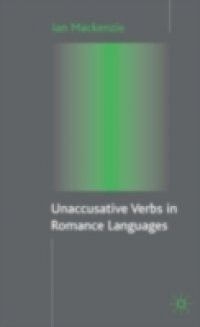Ian Mackenzie questions the status quo in Romance linguistics regarding such matters as auxiliary selection, partitive cliticization, bare subjects, participle agreement , and more. For the last two decades the Ergative/Unaccusative syntactic approach has been accepted as the orthodox analytical paradigm. He here re-examines both the theoretical imperative and the empirical evidence for that approach, drawing on a large amount of new and surprising data from Italian, Spanish, French and Catalan, and concludes that it is essentially unmotivated. Alternative explanations for the phenomena are advanced, based on information structure, semantics and the impact on synchrony of diachronic change. The picture that emerges is one of a complex but interrelated set of causalities that simple dichotomies such as that enshrined in the unaccusative-unergative contrast do no more than label.

